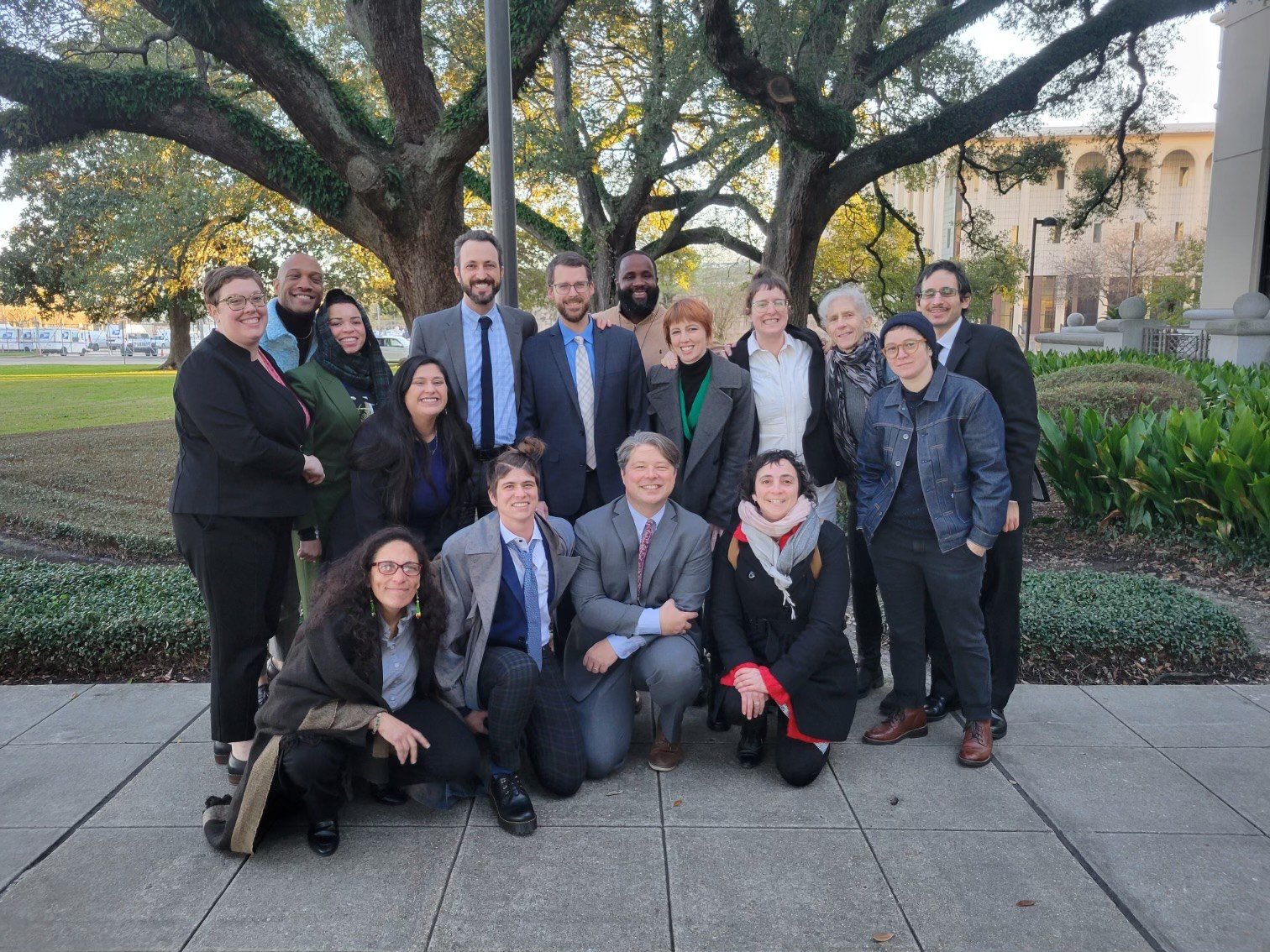$1.17 Million to Reporters and Protesters Who Were Arrested During 2016 Protests
On February 15, 2023, Most & Associates secured a settlement of $1.17 million for two journalists and twelve protesters who were subject to mass arrests by the Baton Rouge Police Department following the 2016 police killing of Alton Sterling. The settlement was approved by the city council the day before attorneys were scheduled to deliver closing arguments in a federal civil rights trial brought by the journalists and protesters.
The trial, which began two weeks earlier, had been dramatic. It addressed the events of Sunday, July 10, 2016, when a youth-led march went to the state capitol to protest police violence. Protesters were directed by police to go to the intersection of East Boulevard and France Street. Once there, BRPD told the protesters to clear the streets – each of the fourteen plaintiffs complied. At trial, BRPD representative Chris Polito testified that his agency had “no evidence” that any plaintiff failed to comply with police orders.
Even after the protesters cleared the streets, BRPD officers said “where you are standing is not good enough,” and swept in to make mass arrests of protesters and journalists – including those who were standing on private property with permission to be there.
Video at trial showed BRPD officers ordering protesters to “leave the area” and simultaneously chasing down and arresting people who attempted to leave. Each of the fourteen plaintiffs was arrested by BRPD, strip-searched, and imprisoned in the East Baton Rouge Parish Prison. One of the plaintiffs was only seventeen at the time – but BRPD still put her in an adult prison where she too was strip-searched and detained.
The trial had many unusual moments, such as:
Two defendants – BRPD officers Jonathan Abadie and Willie Williams – acknowledged on the stand that they had plead the Fifth rather than answer questions about fabricating false evidence and committing perjury.
Plaintiff’s expert, Robert Pusins, testified that he had never before seen officers plead the Fifth in a civil case in his thirty-plus years of experience.
BRPD officers admitted that the affidavits of probable cause used to imprison plaintiffs had been written in advance of the protest. Abadie testified that it was “predetermined” what the protesters would be arrested for.
An officer testified at trial that his name had been forged on the affidavit of probable cause for plaintiff Raae Pollard. Another officer reported that his name had been forged on "numerous" affidavits. Both officers reported the forgery to their chain of command, but no investigation was ever done.
A BRPD representative admitted that BRPD’s punitive “civil unrest” policy was applied to the protesters “because of the content of their speech.”
A BRPD representative admitted that BRPD used a less-than-lethal sonic weapon called a Long Range Acoustical Device (LRAD) on protesters, even though BRPD had never used the device before and had no safety training or safety manual. One officer said they were “messing around” with the weapon when they used it on protesters at close range.
A BRPD internal affairs supervisor testified that no investigations had been opened into any officer’s conduct related to the protests, except for one investigation into an officer who had pointed out that BRPD officers were violating protesters civil rights.
A BRPD representative admitted that then-chief-of-police Carl Dabadie had ordered every single internal affairs investigator to stay at the office, rather than witness the police handling of the protest.
A BRPD representative testified that BRPD was so proud of the way it handled the protest that it sent an officer to “debrief” and train other police departments around the nation about BRPD’s methods.


